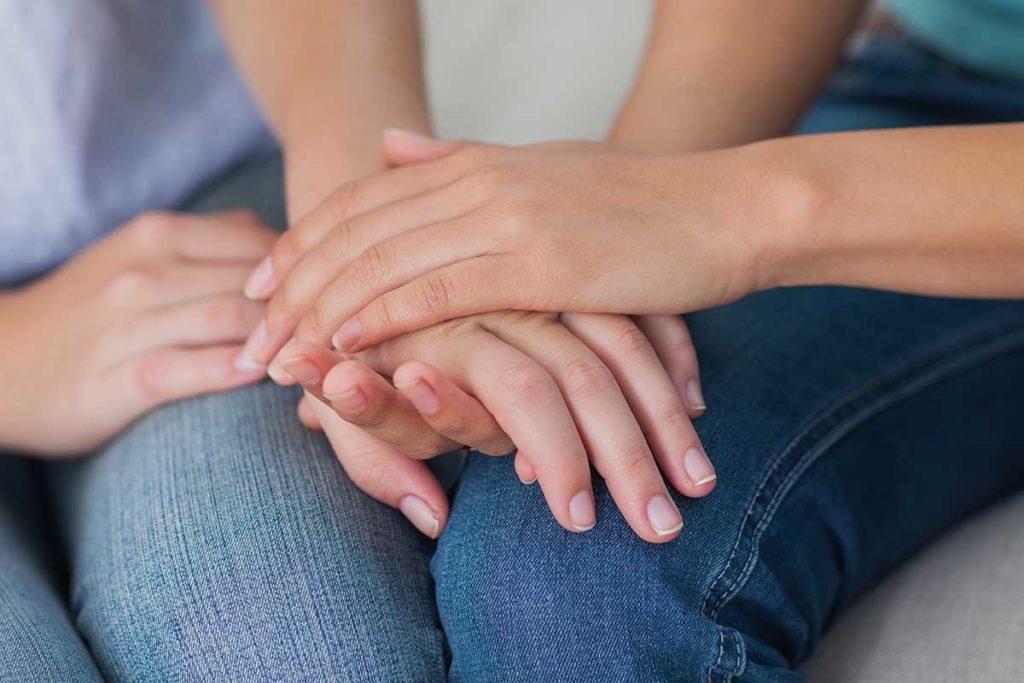When someone has a substance use disorder, their addiction can take over many parts of their life. This effect is valid for all drug addictions but is especially true for cocaine. Much of the damage is in the form of mental and physical consequences for the person using cocaine, but a person’s relationships are also at risk. If someone you are close to is struggling with a cocaine addiction, it can be challenging to know what to do. This challenge is especially true if they have become more distant or standoffish because they hide their cocaine use. Treatment for cocaine addiction is the first step to a healthier life and relationships.
Unless a person receives help from their loved ones, it can be difficult for them to stay sober. Recognizing the signs of cocaine addiction could be a life-saving step in a person’s recovery journey. If you see someone you care about struggling with cocaine use, Northpoint Colorado is ready to guide them toward recovery. Our treatment facility in Loveland, CO supports patients with a judgment-free space and effective therapies. If you want to learn more about our inpatient and outpatient cocaine treatment programs, you can call us at 888.231.1281.
How to Tell if Someone Is Addicted to Cocaine
Cocaine addiction is usually evident if the person using it suddenly starts behaving differently. A person’s friends and loved ones are the ones best suited to be able to tell when this happens. There may also be significant changes to a person’s physical appearance and demeanor and changes in their work or school performance.
Some of the common signs of cocaine addiction may include:
- Erratic mood swings
- Constant sniffling or a permanently runny nose
- Constantly dilated pupils
- Severe and sudden changes in energy levels
- Inability to follow a work or school schedule
- Unexplained financial difficulties
- Spending a great deal of time away from friends and family
- Acting secretively or suspiciously
- Paranoia or anxiety
- Worsening performance at school or work
This list is by no means exhaustive. Some individuals also use cocaine to increase performance at school or work, as the increased motivation and lifted mood can give them a burst of productivity. Those under tremendous pressure to excel may be especially susceptible to using cocaine as a performance enhancer.
“Don’ts” When Helping a Cocaine Addict
There are some things to avoid when helping someone with a cocaine addiction.
Don’t Act Judgmentally
Many people who experience cocaine addiction know they are damaging themselves and their relationships. They may want to stop but simply cannot. Attacking or judging them for succumbing to addiction is not a productive use of time and may make them more resistant to getting help.
Don’t Enable Addictive Behavior
While it may be tempting to let someone continue using cocaine, especially if they assure you that they have everything under control, this is an even more dangerous path. People with addiction enabled by their loved ones find quitting much more challenging.
“Do’s” When Helping a Cocaine Addict
Providing help to a cocaine addict can be the change they need to start a healthier path to the future. Some things to keep in mind when encouraging addiction help include:
Tell Them Your Concerns
Even though a person may be in the grip of addiction, they still care about their friends and family. Addiction changes the way the brain works and warps a person’s ability to judge risk and reward, but it does not fundamentally change the love they feel for their friends and family. When helping someone with cocaine addiction, speak to them truthfully about your concerns and fears regarding their addiction.
Help them Find Professional Help
While a person with a cocaine addiction relies on the support of their loved ones, they still require professional care to overcome cocaine dependence successfully. A skilled therapist can provide a broader perspective and a wealth of experience in treating substance use disorders. Detoxing at home without professional assistance may also lead to relapse or, worst-case scenario, an overdose.
Choose Cocaine Treatment at Northpoint Colorado
If someone you love is struggling with a cocaine addiction, the best thing you can do for them is call Northpoint Colorado today. Our team at our drug treatment facility in Loveland, Colorado is skilled at providing care throughout detox, therapy, and beyond. We offer extensive 12-step programs and family therapy to help you get your life back on track. Don’t let cocaine steal away the future you have together. Contact us at 888.231.1281 to get your loved ones the help they need.

